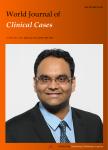Differences in dietary habits of people with vs without irritable bowel syndrome and their association with symptom and psychological status:A pilot study
作者机构:Graduate SchoolPeking University China-Japan Friendship School of Clinical MedicineBeijing 100029China Department of GastroenterologyChina-Japan Friendship HospitalBeijing 100029China Institute of Clinical Medical SciencesChina-Japan Friendship HospitalBeijing 100029China
出 版 物:《World Journal of Clinical Cases》 (世界临床病例杂志)
年 卷 期:2021年第9卷第11期
页 面:2487-2502页
核心收录:
学科分类:1002[医学-临床医学] 100201[医学-内科学(含:心血管病、血液病、呼吸系病、消化系病、内分泌与代谢病、肾病、风湿病、传染病)] 10[医学]
基 金:The National Key Technology Support Program during“12th Five-Year Plan”Period of China,No.2014BAI08B00 the Leapforward Development Program for Beijing Biopharmaceutical Industry(G20),No.Z171100001717008
主 题:Irritable bowel syndrome Dietary habits Quantity per time Intake frequency Symptom severity Psychosocial status
摘 要:BACKGROUND Previous studies have demonstrated that dietary factors are involved in irritable bowel syndrome(IBS),but the role of diet was evaluated mostly based on food frequency *** food categories,quantity per time,and intake frequency are different between IBS patients and non-IBS individuals has not been clearly *** To explore differences in dietary habits of people with vs without IBS and their correlation with symptom and psychological *** A total of 220 questionnaires were administered in a community population and the Rome IV criteria was applied to diagnose *** dietary questionnaire used in this study was multidimensional from food categories,quantity per time,and intake frequency,in contrast to“yes or noclassification used in previous *** including IBS symptom severity scale(IBS-SSS),IBS quality of life,visceral sensitivity index,hospital anxiety and depression score(HADS),and gastrointestinal symptom rating scale were used to assess the *** sum test was used to compare the quantity per time and intake frequency between IBS patients and non-IBS *** correlation between psychological factors and diet was evaluated by Spearman correlation *** regression analysis was used to assess the possible dietary risk factors for *** In total,203 valid questionnaires were collected(response rate 92.3%).Twentyfive participants met the Rome IV criteria for IBS,including 15(60.0%)women and 10(40.0%)*** with the non-IBS group,the quantity per time and intake frequency of soybean and its products,spicy food,and dry-fried nuts were statistically significant in IBS participants(P0.05).They were positively associated with IBS-SSS and HADS anxiety and depression scores(P0.05).Besides,seafood,soft drinks,vegetables,and fruits differed only in quantity per *** intake frequencies of egg,barbecue,and coarse grain were statistically significant in IBS patient



